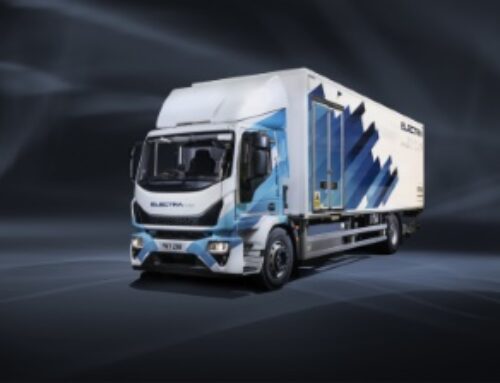Leaving invasive driver monitoring behind
 Paul Holland, managing director of UK Fuel at Fleetcor – the company behind Keyfuels – looks at how to strike a balance on driver data collection
Paul Holland, managing director of UK Fuel at Fleetcor – the company behind Keyfuels – looks at how to strike a balance on driver data collection
Data collection is a core way for businesses to improve efficiency however monitoring individual employees, whether tracking their eye movements to check that they are concentrating or timing loo breaks, can quickly become overbearing. With drivers leaving the profession in droves, often citing ‘soul destroying’ working conditions, alienating workers could be more costly than accepting a certain level of waste due to inefficiency.
It’s important to meet the needs of both a business and its drivers, so how can fleets make sure that they are working efficiently and safely without overstepping boundaries?
Striking a balance
Today precise tracking technologies such as GPS locators are becoming more widespread, used by the likes of Amazon – such B2C deliveries have a clear business case for this as customers like to know when their delivery will arrive. For other applications the use cases centre on efficiency, safety (checking that drivers aren’t speeding), security (tracking stolen vehicles) and preventative maintenance.
While critical for visibility within fleets, drivers can become disgruntled by the implication that monitoring implies – that they aren’t doing their job. If targets are realistic and flexible, accounting for unexpected traffic for instance, it’s less likely an employee will have problems, but there is debate whether systems are spying or genuinely improving safety. This could risk encouraging drivers to either play the system or even quit. Having input from drivers themselves is crucial here: most are experts at what they do and will be able to give comprehensive feedback on targets that are realistic and the systems will work for them.
Driver privacy and opting in
Beyond operational matters, businesses should take note of the legal aspects to driver monitoring that must be considered. That’s because the rules around driver monitoring fall under the General Data Protection Regulations (GDPR) – something organisations may more readily associate with email opt-outs rather than GPS tracking.
Under this legal framework, the information that tracking devices gathers about employees is considered to be personal data that belongs to them. That means that in order for a company to use that data, employees must opt in, just as they would to email marketing. They will have to give their consent to being tracked, either when they join the company or when a driver monitoring system is put in place. Organisations must also let employees know when they are being tracked and only track employees during working hours.
A system that works for everyone
Tracking fleets can support a business to run smoothly and efficiently. If done intelligently and with driver input, there should be no reason that an organisation can’t establish a system that works for everyone. Opting for a fuel card can help operators control their costs and protect their businesses bottom line, keeping fuel spent under control with a fixed weekly price for fuel that is typically cheaper than at the pump. Larger operators can also bunker their own fuel – generally considered the most cost-effective way to refuel on the road.
As well as controlling fuel price, it is essential to control efficiency. Deviating off planned routes wastes time, fuel, and ultimately increases costs. By partnering with a provider that offers the UK’s largest network, drivers should never have to drive far to refuel, sticking to their planned routes.
Pairing this with better harnessing data, such as real-time management information reports for improved visibility around fuel transactions, means operators can better plan fuel purchases at strategic times. Overall, this will offer a complete picture of how your drivers are performing that allows you to increase efficiency without sacrificing morale.
More information about Keyfuels is available from the website.










